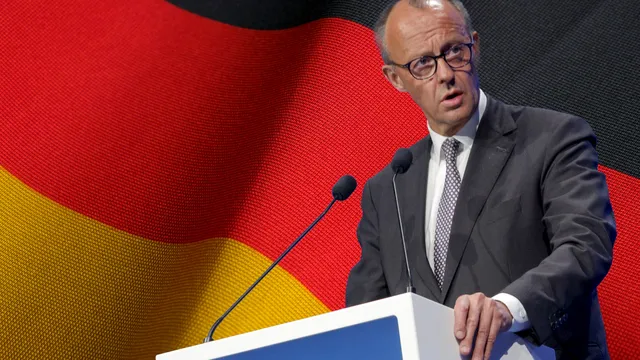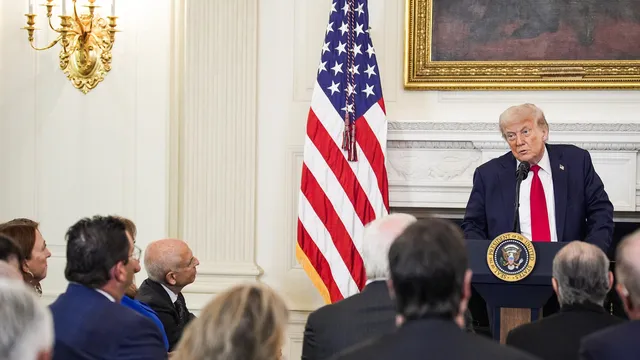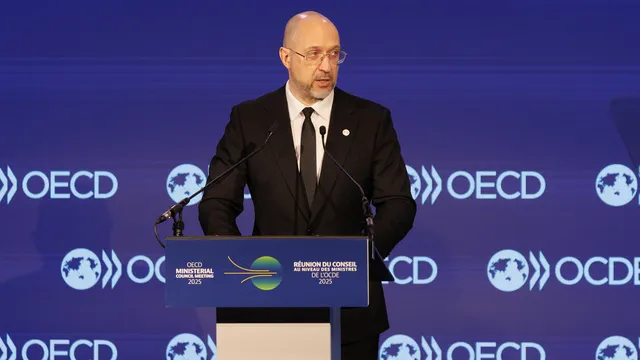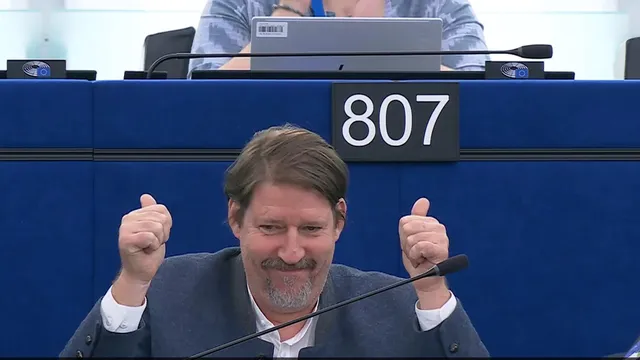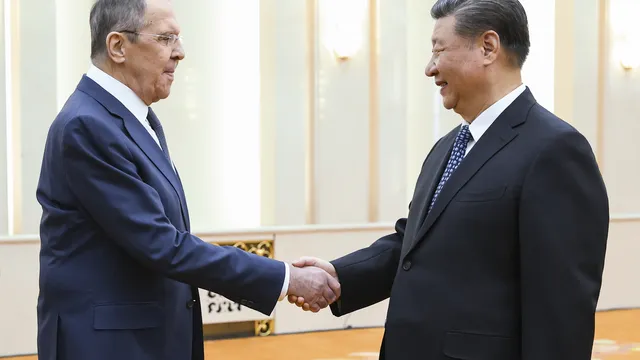Friedrich Merz, the 69-year-old leader of the Christian Democratic Union (CDU) in Germany, will officially become the country's next chancellor today, May 6, after his party formed a coalition government with the Social Democratic Party (SPD).
The two traditional rivals have signed a 144-page governance agreement, entitled “Responsibility for Germany”, in which they pledge to revive Europe's largest economy, curb illegal migration and strengthen Germany's role on the world stage.
Mertz's inauguration will end six months of political chaos following the collapse of Olaf Scholz's SPD-led coalition, and comes at a time of mounting geopolitical pressure and the rise of the country's far right.
Friedrich Merz, a 69-year-old veteran of German politics with a tough stance on migration and a love of aviation, will become the country's next chancellor after winning the federal election on February 23.
But who is this old-school conservative who wants to rid his party of former leader Angela Merkel's centrist legacy?
His longtime rival's decision to leave the top job in 2021 has prompted Merz to come out of political hibernation and run for party leader. After two failed attempts, he was finally elected CDU leader in 2022.
Despite his party's strong showing, his campaign did not go smoothly. His flirtation with the far-right Alternative for Germany (AfD), (which was officially labelled “extremist” by German intelligence on 2 May) three weeks before the election sparked criticism and accusations that he had breached the mainstream parties' “firewall” against the AfD.
Mertz was born in 1955 into a conservative Catholic family in the central German town of Brylon, North Rhine-Westphalia, and joined the CDU youth organisation while still a schoolboy. He entered full-time politics in 1989, when he was elected to the European Parliament at the age of 33.
After one term as an MEP, Mertz, married and a father of three, was elected to the Bundestag - the German parliament - and established himself as a leader in financial policy.
In 2003, he famously opined that German tax rules should be simple enough to calculate on a beer mat.
However, a growing feud with Merkel eventually prompted him to quit politics.
Merz, who attracted the more traditional, right-wing faction in the CDU, lost to Merkel in the party leadership race in 2000.
Merkel's leadership marked a break with CDU tradition - she was the first woman to lead the party, with a Protestant rather than Catholic background and centrist leanings.
The rivalry between the two became more apparent in 2002, when Merz was removed as leader of the opposition in the Bundestag in favour of Merkel.
By the end of 2009, Merz had fully embraced the private sector.
He worked as a lawyer and senior advisor at the international law firm Mayer Brown, among other positions. These endeavors turned him into a multimillionaire, according to the German business newspaper Handelsblatt.
That background may have convinced voters that Merz is a man who can do business - a desirable quality for anyone hoping to fix Europe's largest economy, which in 2024 is shrinking for a second straight year.
Nine years after leaving politics, Merkel's announcement of her resignation from Germany's top job paved the way for Mertz's return. After two unsuccessful attempts to become CDU leader in 2018 and 2021, he was elected leader in 2022, cementing his political comeback.
Merz's desire to distance himself from Merkel's legacy is clear. He seeks to move the CDU further to the right than it was under Merkel's leadership, in part to stop voters turning to the far right, while advocating for a more market-based economy.
In an interview with German broadcaster ZDF in 2019, he described his predecessor's “lackadaisical” leadership as a “carpet of fog” over the country and said he considered her “open” policy towards refugees during the 2015 migrant crisis a serious mistake.
For her part, Merkel criticized Merz in a rare political statement in January after he pushed through an immigration law with the help of the AK Party - now the CDU's main rival. The law was eventually rejected by the German parliament.
However, in an interview at the party congress in early February, Merz repeated to CNN that cooperation with the AK Party was impossible.
"They are against everything we are, everything we have built in the Federal Republic of Germany. There is no cooperation with this party," he said.
His campaign for the chancellorship focused mainly on issues of first necessity such as tax cuts, deregulation and work incentives.
Merz takes a firm stance on immigration. He called for asylum seekers from other EU member states to be turned away at German land borders.
Mertz criticized liberal welfare benefits and accused Ukrainian refugees of “social tourism,” an expression for which he later apologized.
Overall, he promised to cut welfare spending, saying in a rare interview in the run-up to the election that he wanted to avoid “paying people who are not willing to work.”
Merz and the CDU support continued German military aid to Israel in the context of the Gaza war, while advocating a two-state solution as a long-term goal.
In a televised debate with Chancellor Olaf Scholz earlier, Merz expressed unease about US President Donald Trump's proposal to “take over” Gaza, while pointing out that it remains to be seen “what is actually meant.”
On the issue of sending aid to Ukraine, Merz argued for a more practical approach than the outgoing SPD coalition. He supports the delivery of long-range Taurus cruise missiles to Kiev - something the Scholz government refused for fear of drawing Germany into the conflict.
“We are on Ukraine's side because the offensive is against all of us,” he told CNN.
Merz reiterated his support for Ukraine.
"Europe remains firmly on Ukraine's side. Now more than ever, we must put Ukraine in a position of strength. For a just peace, the country under attack must be part of the peace talks," he said.
Merz said he would work to secure Europe's independence from the United States.
“My absolute priority will be to strengthen Europe as quickly as possible so that step by step we can achieve true independence from the United States,” he said.
In his spare time, Mertz is an amateur pilot and sometimes flies his own private jet - an expensive hobby for a man who once described himself to the German tabloid Bild as “a member of the upper middle class”. | BGNES
---
By Sophie Tano, analysis for CNN.

 Breaking news
Breaking news
 Europe
Europe
 Bulgaria
Bulgaria
